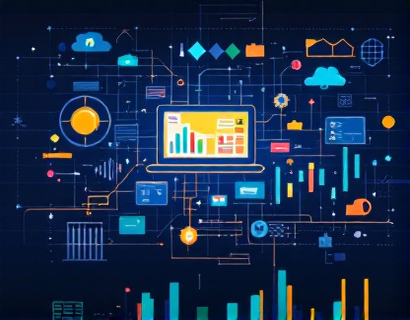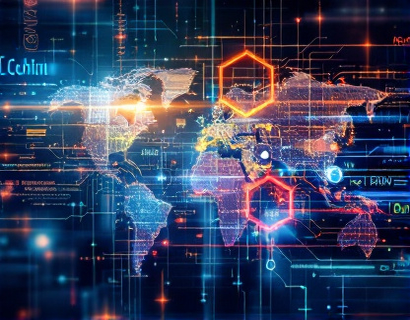AI Service Innovations: Transformative Solutions for Industry Leaders
In an era where technology is rapidly reshaping the business landscape, artificial intelligence (AI) stands out as a pivotal force driving innovation and efficiency across various sectors. This article delves into the transformative AI services that are redefining industry standards, offering unprecedented opportunities for professionals, developers, and business leaders to enhance their operations and stay ahead of the curve.
The integration of AI into business processes is no longer a futuristic concept but a present reality. From automating routine tasks to providing deep insights through data analysis, AI services are proving to be invaluable assets for organizations aiming to optimize their workflows and achieve sustainable growth. This comprehensive guide aims to illuminate the latest advancements in AI, highlighting solutions that cater to the diverse needs of industry pioneers and tech enthusiasts.
Understanding the Core of AI Services
At its core, AI refers to the simulation of human intelligence processes by machines, particularly computer systems. These processes include learning (the acquisition of information and rules for using it), reasoning (using rules to reach approximate or definite conclusions), and self-correction. In the context of AI services, these capabilities are harnessed to create solutions that can adapt, improve, and perform tasks that traditionally required human intervention.
The scope of AI services is vast, encompassing machine learning, natural language processing, computer vision, robotics, and more. Each of these areas offers unique benefits and applications. Machine learning, for instance, enables systems to learn from data and improve over time without being explicitly programmed. Natural language processing allows machines to understand, interpret, and generate human language, facilitating more natural and effective communication between humans and machines.
Enhancing Productivity with AI
One of the most significant impacts of AI services is their ability to enhance productivity. By automating repetitive and time-consuming tasks, AI frees up valuable time for employees to focus on higher-value activities. For example, in manufacturing, AI-powered robots can handle assembly line tasks with precision and speed, reducing errors and increasing output. In the service industry, chatbots powered by natural language processing can handle customer inquiries around the clock, providing instant responses and improving customer satisfaction.
Moreover, AI-driven analytics tools can process vast amounts of data quickly, offering insights that would be impossible for humans to discern manually. These insights can inform strategic decisions, optimize resource allocation, and drive operational efficiency. For instance, in the retail sector, AI can analyze sales data and customer behavior to predict trends and personalize marketing efforts, leading to higher conversion rates and increased revenue.
Driving Success Through AI Innovations
Beyond productivity gains, AI services offer transformative solutions that can drive overall business success. One such innovation is AI-based predictive maintenance, which uses machine learning algorithms to predict equipment failures before they occur. This proactive approach minimizes downtime, reduces maintenance costs, and extends the lifespan of machinery. In the aviation industry, for example, predictive maintenance can significantly enhance flight safety and operational reliability.
Another area where AI is making a substantial impact is in the field of healthcare. AI-powered diagnostic tools can analyze medical images and patient data to assist doctors in making more accurate and timely diagnoses. These tools can also help in personalized treatment planning by analyzing vast amounts of medical literature and patient data, leading to better patient outcomes and more efficient healthcare delivery.
Customizing AI Solutions for Specific Industries
While the benefits of AI are universal, the most impactful solutions are those tailored to the specific needs of each industry. For instance, in the finance sector, AI can enhance fraud detection by analyzing transaction patterns and identifying anomalies in real-time. This not only protects financial institutions but also builds trust with customers by ensuring the security of their transactions.
In the agriculture sector, AI-driven precision farming techniques use satellite imagery and sensor data to optimize crop yields and resource usage. These solutions can monitor soil moisture levels, predict weather patterns, and recommend the optimal times for planting and harvesting, leading to more sustainable and profitable farming practices.
Building a Future-Ready Workforce with AI
The integration of AI into business processes also presents an opportunity to upskill and reskill the workforce. As AI takes over routine tasks, there is a growing demand for professionals who can develop, implement, and manage AI systems. This shift necessitates a focus on education and training programs that equip the workforce with the necessary skills to thrive in an AI-driven environment.
Educational institutions and corporate training programs are increasingly incorporating AI-related courses to prepare students and employees for the future. These programs cover a range of topics, from basic AI concepts and machine learning algorithms to advanced applications in specific industries. By investing in AI education, organizations can ensure a steady supply of talent capable of driving innovation and maintaining a competitive edge.
Challenges and Considerations in AI Adoption
While the benefits of AI services are clear, organizations must also be aware of the challenges and considerations involved in their adoption. One of the primary concerns is data privacy and security. AI systems often require access to large amounts of data, raising questions about how this data is collected, stored, and used. Implementing robust data governance policies and adhering to regulatory standards are crucial to addressing these concerns.
Another challenge is the potential for bias in AI algorithms. Since AI systems learn from data, any biases present in the training data can be perpetuated or even amplified by the AI. It is essential for organizations to conduct thorough bias assessments and implement fairness measures to ensure that AI-driven decisions are equitable and unbiased.
The Role of AI in Sustainable Development
AI services are not only transforming businesses but also playing a vital role in addressing global challenges and promoting sustainable development. For example, AI can optimize energy usage in buildings and cities, reducing carbon footprints and conserving resources. In environmental conservation, AI-powered monitoring systems can track wildlife populations, detect illegal activities, and monitor climate change impacts, aiding in the preservation of ecosystems.
In the realm of disaster management, AI can enhance early warning systems and response coordination, saving lives and reducing the impact of natural disasters. By leveraging AI, organizations can contribute to a more sustainable and resilient future, aligning with global efforts to achieve the United Nations Sustainable Development Goals.
Conclusion
The innovations in AI services represent a significant leap forward in technology, offering transformative solutions that can revolutionize industries and drive success. From enhancing productivity and efficiency to enabling data-driven decision-making and fostering sustainable development, the potential of AI is vast and promising. As organizations continue to explore and integrate these advanced technologies, the future of business looks brighter and more innovative than ever.










































